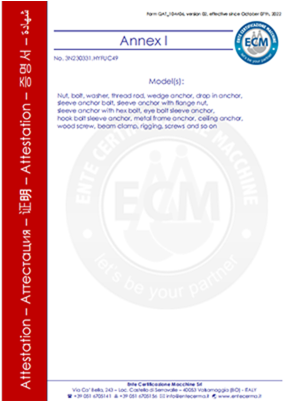des. . 09, 2024 23:40 Back to list
Understanding M12 Washer Dimensions and Specifications for Various Applications
Understanding M12 Washer Size Importance and Applications
When it comes to mechanical components, the significance of washers cannot be overstated. Among the numerous washer types available in the market, the M12 washer stands out due to its widespread application in various industries. This article delves into the specifications, functions, and applications of the M12 washer, ensuring that engineers, DIY enthusiasts, and anyone involved in construction or machinery can understand its importance.
What is an M12 Washer?
An M12 washer is designed to fit a bolt or screw with a 12 mm diameter. It is part of the metric system commonly used in many countries, making it essential for various engineering and construction applications. Washers are typically flat, disc-shaped pieces of metal or plastic with a central hole that allows them to be placed over the bolt or screw shaft.
M12 washers come in various styles, including flat, spring, and lock washers, each serving a specific purpose. The flat washer is the most common and is often utilized to distribute the load of the bolt or screw evenly across the surface, preventing damage to the material being fastened. Spring washers provide additional tension and help maintain the tightness of the fastener, while lock washers prevent the fastener from loosening due to vibration.
Dimensions and Specifications
The specifications for an M12 washer, especially the flat washer, include a nominal outer diameter, inner diameter, and thickness. Generally, the outer diameter of an M12 flat washer is about 24 mm, while the inner diameter is precisely 12 mm. The thickness can vary based on the material and the intended use, but it typically falls around 2 mm to 3 mm. These dimensions make M12 washers compatible with M12 bolts and screws, ensuring a secure fit and distribution of force.
Materials Used
M12 washers are manufactured from various materials, including steel, stainless steel, brass, and plastic. The choice of material largely depends on the application and environmental factors. For example, stainless steel washers are preferred in applications that require corrosion resistance, while steel washers are often used in general applications with less exposure to moisture. Additionally, plastic washers can be utilized when electrical insulation or chemical resistance is vital.
m12 washer size

Applications
Construction and Manufacturing
In construction and manufacturing, M12 washers are an integral part of any bolted connection system. They are used to secure joints, connect structural members, and ensure components stay in place under load. By using M12 washers, construction professionals can improve the longevity and stability of their structures, reducing the likelihood of failures that can lead to costly repairs or even disasters.
Automotive Industry
The automotive industry is another significant consumer of M12 washers. From assembling engines to fastening body components, these washers are critical in ensuring that bolts remain tight and prevent loosening due to the vibrations associated with vehicular movement. The use of high-quality M12 washers can enhance the durability and safety of vehicles.
DIY Projects
For DIY enthusiasts and home improvement projects, understanding the importance of M12 washers can save time and enhance the quality of work. Whether building furniture, installing fixtures, or working on machinery, M12 washers help distribute weight and pressure evenly, reducing the risk of material failure.
Conclusion
The M12 washer, though often overlooked, plays a crucial role in various applications, from construction and manufacturing to automotive and DIY projects. Its specific dimensions and material variations ensure its compatibility with a wide range of fasteners, providing safety, stability, and durability. By understanding the size and function of M12 washers, individuals and professionals alike can make informed decisions, thereby improving the quality and longevity of their projects. Whether you are specifying components for a new construction project or tackling a home repair, using the right washer can make all the difference.


